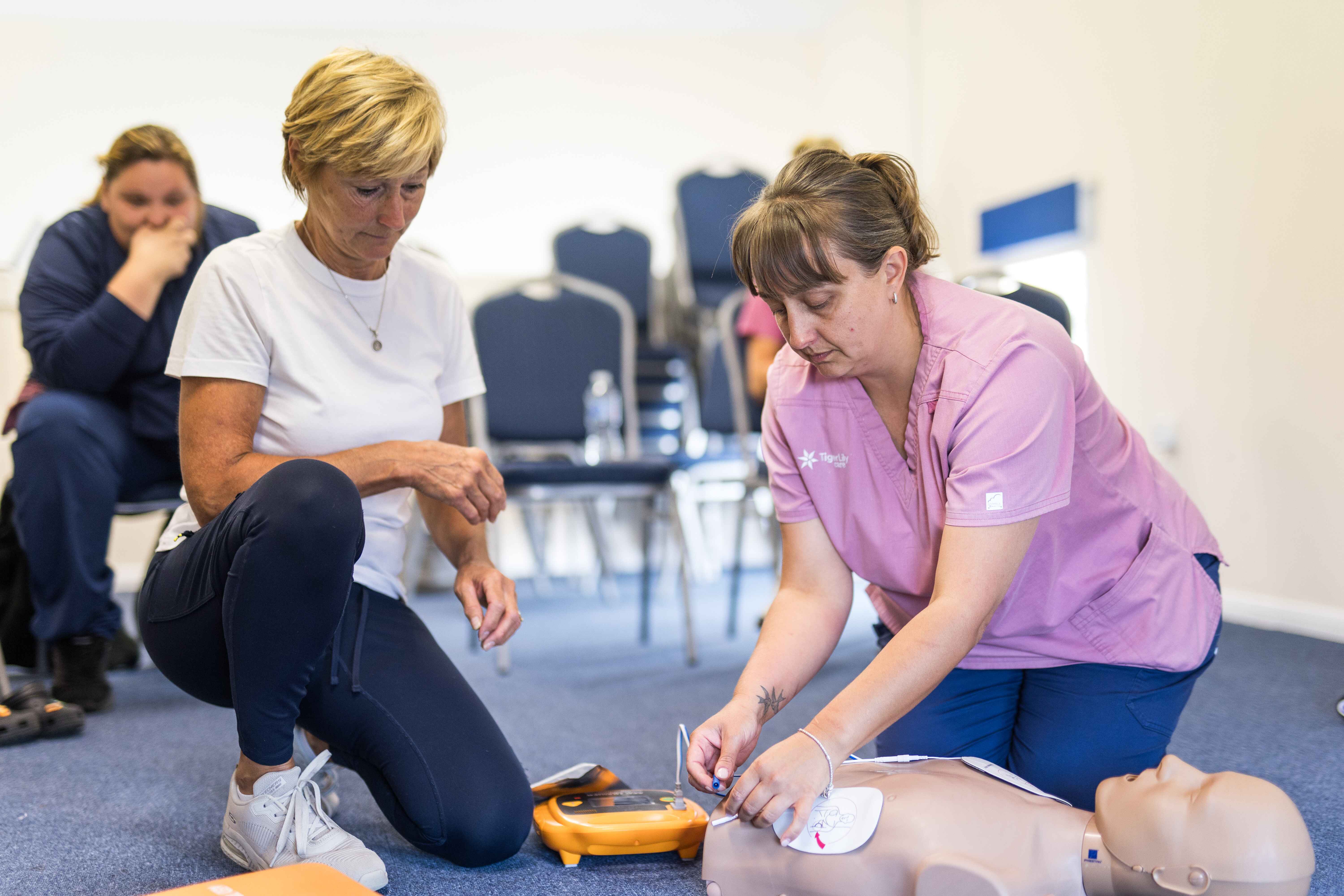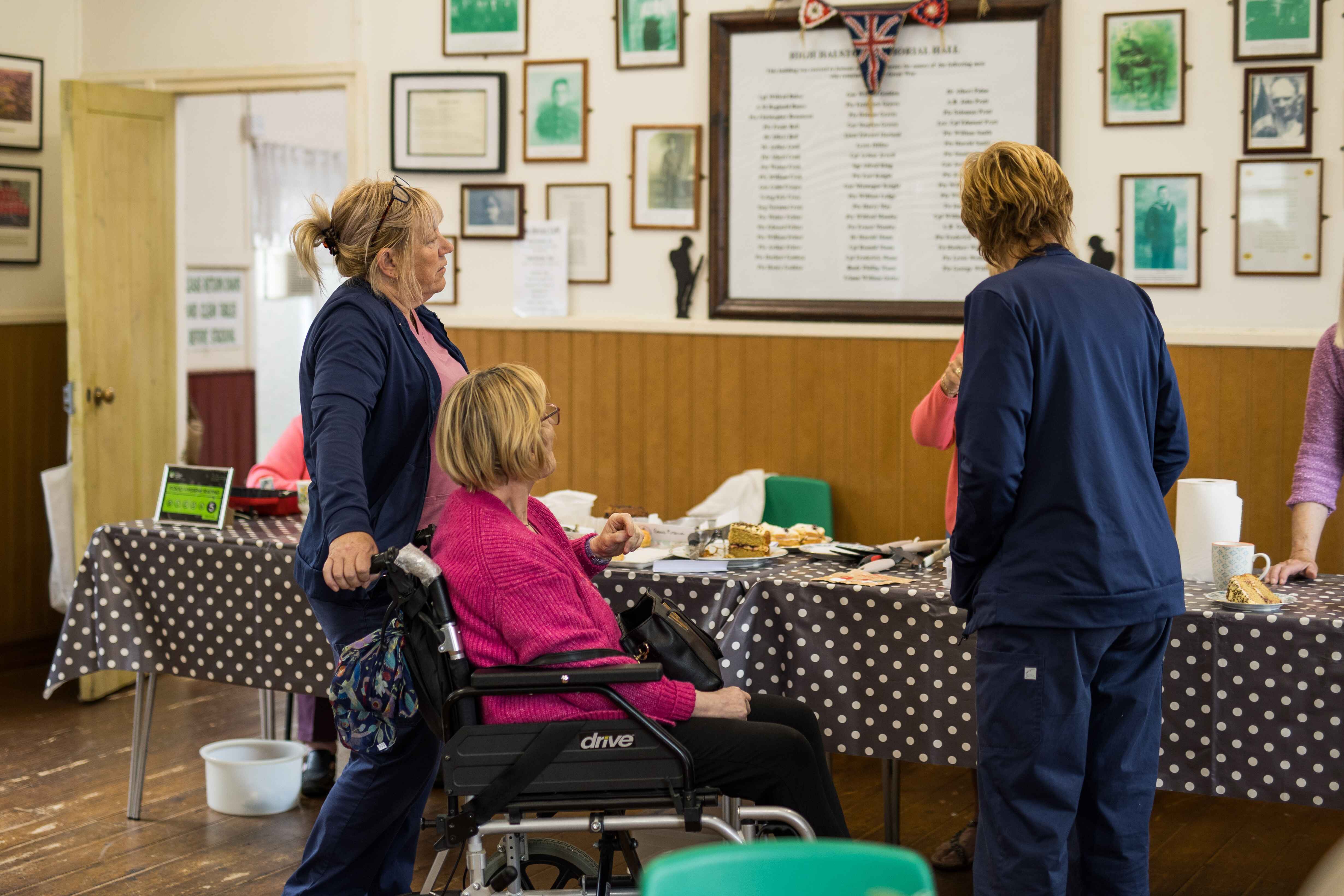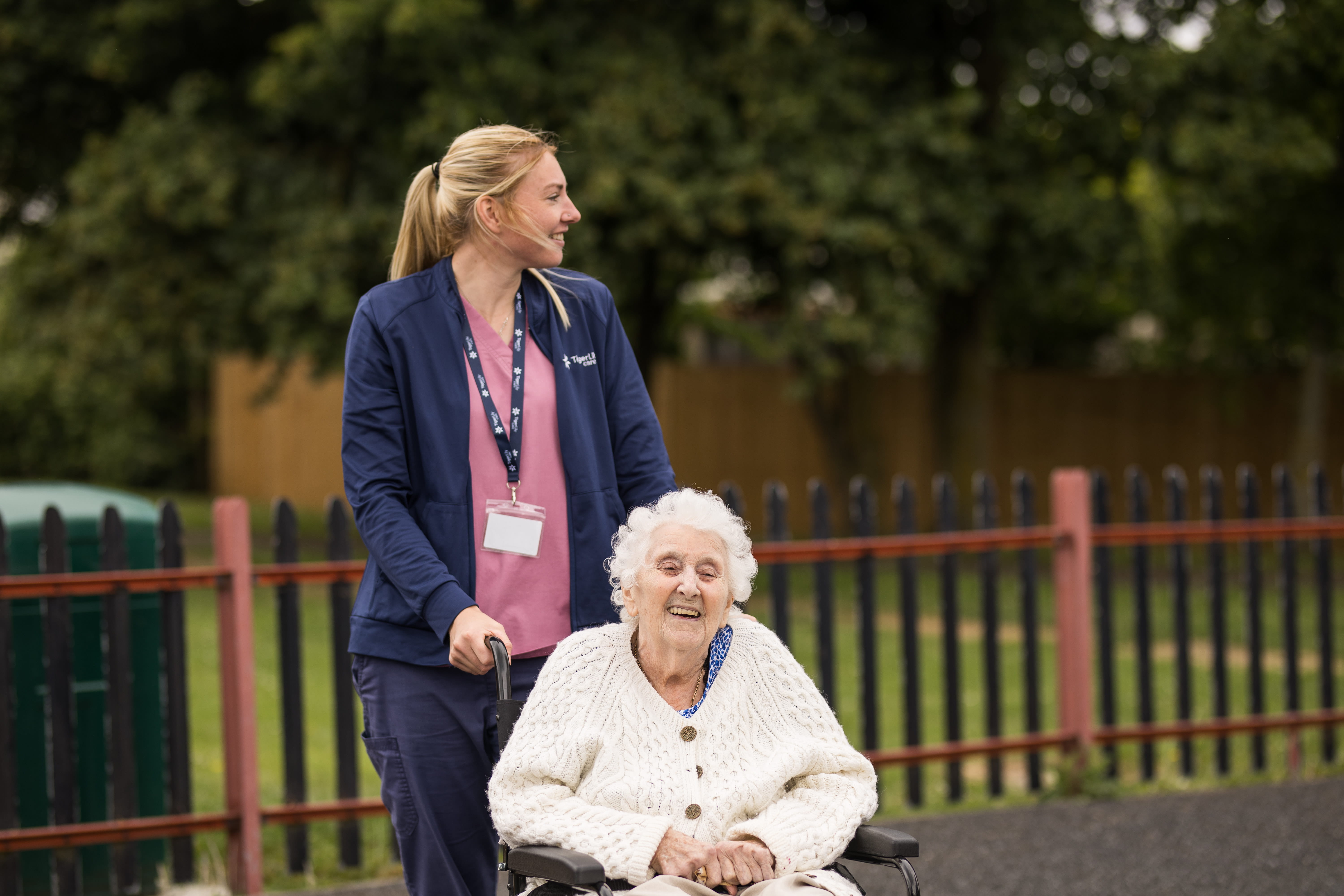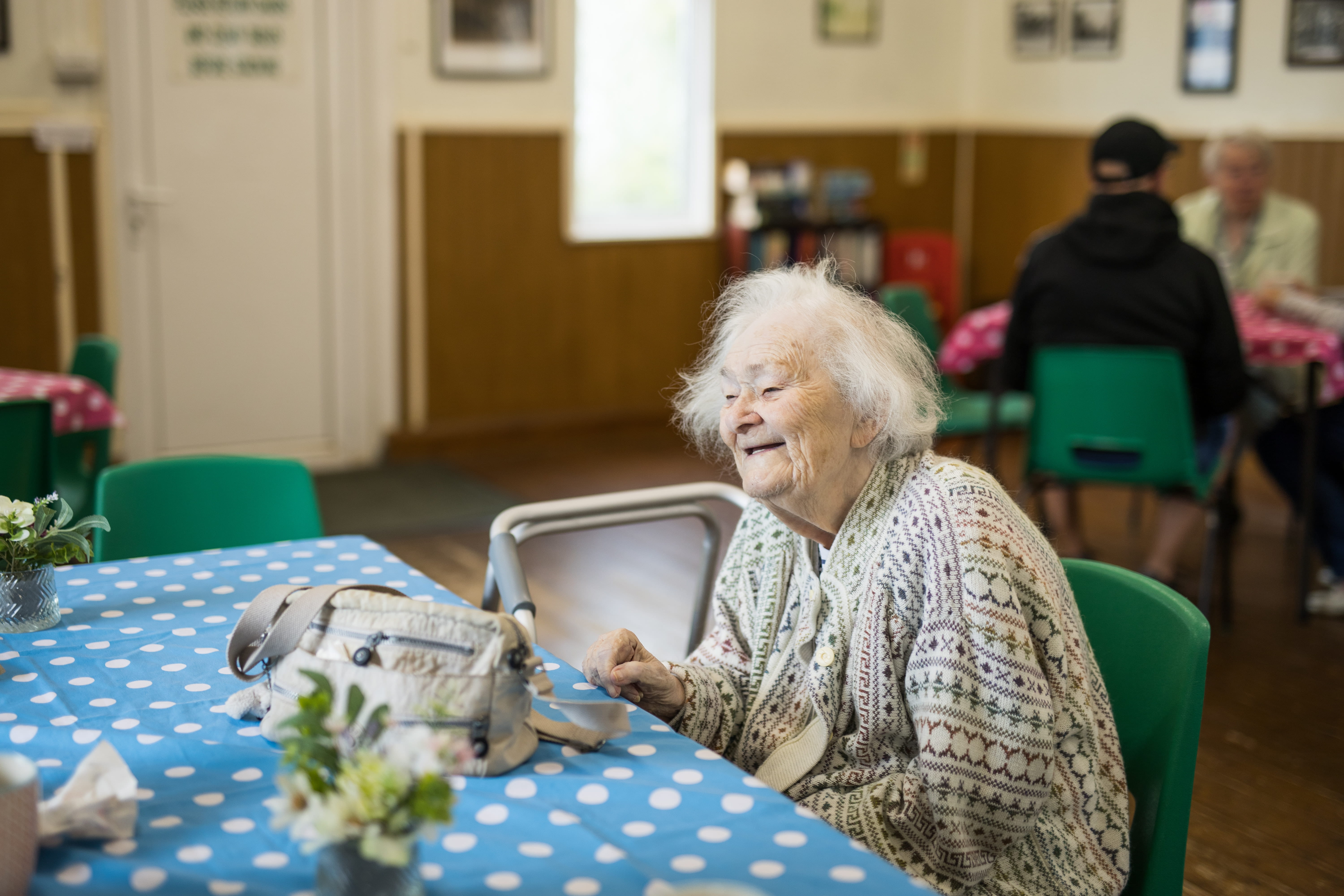Heart disease remains one of the leading causes of death and hospitalisation in older adults. Yet many seniors with heart conditions continue to live fulfilling lives at home, thanks in large part to the daily support of family carers and loved ones. Providing that care, however, can feel overwhelming at times. How do you manage medications, spot warning signs, support healthy habits, and maintain quality of life?
Whether you're a spouse, adult child, friend or professional caregiver, understanding how to support a senior with heart disease at home is essential. This guide offers clear, practical strategies for managing care, improving wellbeing, and building confidence as a carer. From medication management to emotional support, every role you play makes a meaningful difference.
Understanding Heart Disease in Older Adults
Heart disease is a broad term that includes conditions such as coronary artery disease, heart failure, arrhythmias, and valvular heart disorders. These conditions can impact the heart's ability to pump blood efficiently, leading to a range of symptoms and complications that affect daily life.
Common symptoms in seniors with heart disease include:
- Fatigue and low energy
- Shortness of breath, particularly with exertion
- Swelling in the ankles, feet, or abdomen
- Chest pain or tightness
- Irregular or rapid heartbeat
- Dizziness or fainting
Older adults may also have multiple health conditions (known as comorbidities), which can complicate the management of heart disease. Memory issues, arthritis, or diabetes, for example, may interfere with medication adherence or physical activity.
Understanding how these conditions interact and recognising the subtle ways symptoms may present in older people is key to providing timely, compassionate care.
Supporting Medication and Treatment Plans
Heart disease treatment typically involves a combination of medications, lifestyle changes, and regular medical monitoring. Seniors may be prescribed beta-blockers (e.g., propranolol), ACE inhibitors (e.g., ramipril), statins (e.g., atorvastatin), blood thinners (e.g., apixaban), or diuretics (e.g., furosemide), among others. Managing these treatments effectively at home is one of the most important roles a carer can play.
Here’s how to support a safe and consistent medication routine:
- Create a clear medication schedule using a chart, app, or pill organiser.
- Set reminders for morning and evening doses.
- Track side effects like dizziness, fatigue, or low blood pressure.
- Attend medical appointments and keep a running list of medications.
- Ensure prescriptions are refilled on time and kept in a safe, visible location.
It’s also helpful to learn the purpose of each medication and how it fits into the broader treatment plan. If your loved one is reluctant or confused about taking medication, discuss this with their GP or pharmacist. Changes in dosage or formulations (such as liquid alternatives) may help improve compliance.
Encouraging a Heart-Healthy Diet
Diet plays a major role in managing heart disease. For seniors, food choices need to strike a balance between medical recommendations and practicality. Meals must be nutritious, enjoyable, and easy to prepare or chew.
Here are some heart-healthy dietary tips:
- Limit salt intake to reduce fluid retention and high blood pressure.
- Encourage fresh fruits and vegetables as snacks and side dishes.
- Choose whole grains like brown rice, oats, and wholemeal bread.
- Select lean proteins such as fish, beans, or skinless poultry.
- Cook with healthy fats such as olive oil instead of butter.
- Avoid processed foods high in sodium, sugar, and trans fats.
Older adults may experience a loss of appetite or changes in taste, so consider smaller, more frequent meals. Hydration is also crucial, though some heart conditions may require fluid intake to be monitored. Always follow guidance from a healthcare provider when setting up dietary plans.
Involve your loved one in planning or preparing meals when possible. This maintains their sense of control and can boost appetite and morale.
Promoting Safe Physical Activity
Staying active is vital for heart health. Even gentle movement can improve circulation, mood, and energy levels. However, for seniors with heart disease, exercise must be carefully tailored to their condition and ability.
Carers can encourage physical activity by:
- Helping set achievable goals, such as a 10-minute walk each day.
- Suggesting low-impact options like walking, stretching, tai chi, or chair-based exercises.
- Monitoring for warning signs during or after activity (e.g., breathlessness, chest pain, dizziness).
- Encouraging rest breaks and pacing throughout the day.
- Creating a routine that includes movement at the same time each day.
Always check with a doctor before introducing new forms of exercise. With the right precautions, staying active can help slow the progression of disease, reduce depression, and improve overall well-being.
Recognising Warning Signs and Knowing When to Seek Help
When supporting someone with heart disease, being alert to changes in their condition can prevent serious complications. Many hospital admissions can be avoided if warning signs are caught early.
Red flags to watch for include:
- Sudden or worsening shortness of breath.
- Unexplained weight gain over a few days.
- Swelling in the legs or abdomen.
- Irregular heartbeat or palpitations.
- New or increased chest discomfort.
- Light-headedness or fainting.
- Fatigue that disrupts normal daily activities.
Keep emergency contact numbers, a list of current medications, and a brief medical history easily accessible. If you suspect a heart attack or stroke, call emergency services immediately.
It’s a good idea to have an agreed-upon care plan or action plan in place for worsening symptoms, particularly for conditions like heart failure.
Emotional Wellbeing and Support
A diagnosis of heart disease can be emotionally overwhelming, especially for older adults who may already be facing other changes in health, independence, or mobility. Mental health is an important part of overall cardiac care.
Ways carers can support emotional wellbeing include:
- Be a calm, reassuring presence and listen without judgment.
- Encourage social connection through regular visits, calls, or community activities.
- Help them maintain hobbies or adapt them to suit current abilities.
- Watch for signs of depression such as withdrawal, loss of interest, or changes in sleep and appetite.
- Suggest speaking with a GP or counsellor if emotional distress is persistent.
Supporting emotional resilience is just as vital as managing physical symptoms. The encouragement and patience of a caring family member can make a world of difference.
Carer Wellbeing and Support
Being a carer to someone with heart disease can be both rewarding and exhausting. Over time, stress and fatigue can take a toll on your own health and well-being.
To care well, you must also care for yourself. Here’s how:
- Set realistic expectations and don’t try to do it all alone.
- Accept help from family, friends, or professional services.
- Use respite care options to take breaks when needed.
- Talk to someone about how you’re feeling, whether it’s a friend or a professional.
- Take time for rest, hobbies, and exercise, even if only in small doses.
Your role is important, but you are not invincible. The stronger and healthier you are, the better support you can provide.
Useful Resources
Caring for someone with heart disease at home can feel overwhelming, but there are many trusted resources available to provide information, guidance, and practical support.
Websites and Organisations:
- British Heart Foundation (BHF) – Offers detailed information on heart conditions, treatments, lifestyle changes, and support groups.
- NHS Heart Health Resources – Provides reliable guidance on medication management, symptom monitoring, and healthy living.
- American Heart Association (AHA) – Contains educational materials, heart-healthy recipes, and caregiver support tips.
Support Services:
- Local cardiac rehabilitation programmes can help patients recover and build healthier routines.
- Community health visitor or district nurse services can offer home-based health monitoring.
- Online or in-person carer support groups provide emotional support and practical advice.
Tools and Aids:
- Blood pressure monitors for at-home tracking.
- Medication reminder apps like Medisafe.
- Printable heart health checklists and symptom logs to share with healthcare professionals.
Using a combination of professional medical advice, reputable information sources, and supportive community networks can help carers feel more confident and ensure seniors with heart disease receive the best possible care at home.
Conclusion and Takeaways
Supporting a senior with heart disease at home requires awareness, empathy, and a steady routine. From helping with medication and encouraging healthy eating to spotting warning signs and providing emotional support, every action you take helps your loved one feel more secure and cared for.
The good news is you don’t have to be a medical expert to make a difference. With clear communication, basic health knowledge, and a willingness to ask for help when needed, you can create a supportive, nurturing home environment that promotes long-term heart health and independence.
Every small act of care counts, and your efforts truly matter.
Next step: Review your current care approach. Is there one small thing you could change this week to improve your loved one’s routine, comfort, or confidence?








